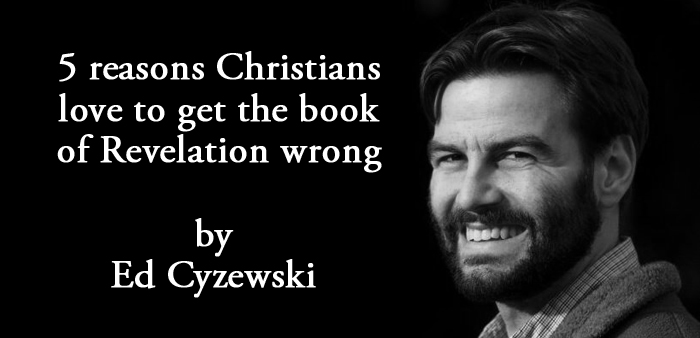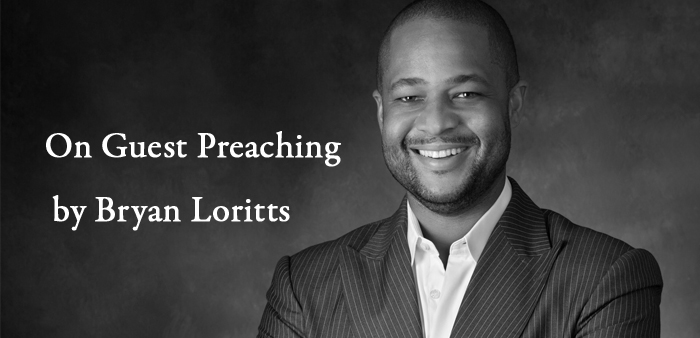When The Web Is Good
When the web is good, I like to give some shout outs. Here’s what I enjoyed reading this past week…
This post, “5 Reasons Christians Love To Get The Book Of Revelation Wrong” by Ed Cyzewski (guest post on Zack Hunt‘s The American Jesus).
This post, “On Guest Preaching” by Bryan Loritts (note: this one might only be of interest to pastors).
This serious post, “Celebrity Is The Worst Drug In Christian Leadership Right Now” by funnyman Jon Acuff.
OK. Your turn. Share what you saw/read/heard online this week that was good in the comments below. Looking forward to your suggestions…





I read the Cyzewski blog with great interest. I was raised in a church where prophecy was the major topic of our mid-week Bible Study for over 10 years. The book of Revelation was discussed in depth based, I’m certain, on the opinions of those with whom Mr. Cyzewski would disagree. Despite the years of faithful attendance to our weekly meetings (yep, we were the family who was there if the doors were open), I don’t consider myself to be an expert on prophecy, I probably know more about the subject than many others. Whether it be a theology Mr. C would agree with or not, I can’t say.
My problem with his blog starts in the first sentence. Zero Incentive? Christianity is nothing more than opinion without the bedrock of scripture. If we do not recognize the Bible as the authoritative Word of God, we are adrift on the seas of prevailing thought. Perhaps those who attend Christian churches to check a box or get their goose bumps for the week have zero incentive, but for those serious about hearing from God and doing His will, an accurate interpretaion of scripture is paramount.
E.C. then joins the fray between theologists by attacking the doctrine of the Rapture, which he later calls a “mistaken doctrine” by implying that the position held by those who question its (the doctrine of the Rapture) validity is the only acceptable viewpoint. His assertion that the doctrine of the Rapture rose to prominence because of marketing and chance rather than accuracy is a bold statement that, at best, ignores a number of factors that would go in to a the development of a doctrine or way of thinking – factors such as the level of understanding of international politics and the level of education of the average citizen. I daresay, there are “learned Bible scholars” who hold a viewpoint of the doctrine of the Rapture consistent with modern evangelical understanding who know as much about the issue as E.C.
He then states that among today’s biblical scholars there exists a consensus that the majority of the Book of Revelation addressed events that concerned the 7 churches in Asia Minor. A consensus? Who are these scholars, is his a comprehensive list of recognized scholars? There is a consensus of scholars in my cubicle at work who stated that Michigan State would win the NCAA Men’s Basketball championship this year. Guess what? His statement leads me to question where he stands on Paul’s letter to the church at Corinth, or Phillipi, or Thessalonica, or Ephesus, or the Glatians or Collosians. What about his personal letters to Timothy, Titus, or Philemon? Are those not relevant to me today because Paul wrote them to someone else? Are they not inspired by the Holy Spirit to be part of the canon of scripture that reveals the hope of Salvation to the world?
I must insert here that I do take issue with his assertions regarding the doctrine of the Rapture. First, the book of Revelation does not spend much time on what we call the Rapture. It is mostly concerned with the events we call the Great Tribulation. The doctrine of the Rapture is based largely on Christ’s teaching in the Gospels that he will return to earth to claim his bride, and on the writings of Paul, most notably in his first letter to the Thessalonian christians. The terminology Paul uses is “caught up”, which is the definition of the word Rapture, hence the name. To call it a faulty doctrine is to rip these passages of scripture out of the text. His references to greeting a king outside of the city fall flat with Paul’s statement that the dead will rise to meet Christ first. Perhaps there is a not a separation between what we call the Rapture and the 2nd Coming of Christ to set up His millenial reign. I can possibly see that the Rapture and 2nd Coming could be a single event, but to ignore it as a teaching in scripture doesn’t seem to hold water.
I can not take issue with his assertions regarding the preoccupation with and sensationization of the Book of Revelation that is so prevalent in modern evangelical christianity. I agree it is important to have an understanding of the climate of our world that the bible tells us will be at the time of the end times, I believe it is much more important that we be found busy doing what Jesus commanded us to do – love God, love people – when He does return. I agree that the message of possible persecution and punishment for our faith is a concept that is anathema to most American Christians, and I absolutely agree with his statements that the message of Revelation is Good News. But I wonder how he can say it was for the churches in Asia and not applicable to modern christians yet still be Good News for us today. His inconsistincies are maddening.
I came away thinking he felt superior to those who held the position opposite his on this issue. I have a to recognize my tendency here to resist those who I consider to be arrogant, especially those who disagree with me and appear arrogant. Though I am always open to learn something new or to see things from a different perspective, it bothered me that he spent so much time stating what the Book of Revelation was not about, only to tell us that there is no way we could know for certain what it is about. His argument violates the rules of logical disussion – if we can’t know what something means, we can’t know what it doesn’t mean. If we truly can’t know what the Revelations means, the doctrine of the Tribulation held by modern evangelicals has as much validity as his viewpoint, whatever it may be – which brings me to my conclusion (finally!).
E.C. may have some valid points to make regarding the correct interpretation of the Book of Revelation, but if we are going to hear what they are we are going to have to read his book. Does he explain to us what the correct interpretation of Revelation is in his book, or does he simply explain to us what is not. I don’t really care to know what it is not, what’s the point – except to sell his book? Will I read it? probably not.
I probably didn’t read EC’s post as analytically. Because of the boldness (or arrogance) of the other well known (celebrity) teachers of all things end-times (John Hagee, Jack Van Impe, Harold Camping – and for the even more bizarre… William Tapley AKA “Third Eagle of the Apocalypse & the Co-Prophet of the End Times”), I enjoyed the bold (or arrogant) push from the other direction (EC).
I am drawn towards teachers who present a different perspective on Revelation than the one I grew up with (which seemed to be informed by the Left Behind series of books). EC’s 5 points in general resonate with how I feel about the way Revelation has been used in the church (at least the kind I grew up in). Especially the “we all have a little Dan Brown conspiracy theorist in us” and the “the Bible is ‘clear’ about end times” points.
Perhaps more humility is needed all around – from all the different camps. I’m generally suspicious of anyone who has Revelation all figured out… (also, my favorite expression is “I don’t know”).
EC is not a theologian. He’s a writer. He does has an MDiv. from Biblical Theological Seminary, so he’s not uninformed – but still, he’s not a theologian. NT Wright is a recognized modern-day theologian, and his book “Surprised by Hope” offers some perspectives on Revelation that are influencing the church (like the ones I grew up in) today.
Anyway, I appreciate your push-back Bryan. I hear what you’re saying.
This post, “Disunity in Reading the Same Bible” by Nate Pyle does, I think, a great job of pointing out how we can have a high view of Scripture, yet still hold opposing views on things. He’s suggesting that we won’t find unity in Scripture, but we will in Christ. I’d be interested in your take on it.
http://natepyle.com/disunity-in-reading-the-same-bible/
PB: I hope my response didn’t sound like I thought I have it all figured out. I don’t, and “I don’t know” is also my typical response. EC’s post bothered me to the extant he was painting a picture implying a majority of all theologians agree with his position. And though I also disdain the manipulation of the message of Revelation used by many in evangelical circles, of itself, it does not diminish the validity of a typical evangelical interpretation, as I felt EC was implying. To me, reading his post left me feeling like I had just watched a commercial on TV where someone was trying to create within me the need to buy their product. I felt a little manipulated, and I hate that.
I really liked the Nate Pyle post. I particularly liked this quote, “I think unity, complete unity, only comes when we are mature enough to stay relationally connected with others in the midst of our disagreement.” He is right on, as far as I’m concerned, when he speaks of our unity centering around Jesus. We divide into our camps to reaffirm our own viewpoints on scripture, but most of our divisions are over things that are secondary to the only main thing. I really like the way you keep the main thing, the main thing at NWLife. Our differences are not as important as the one thing we all agree on – Jesus is the hero. I also like that you put your viewpoint out there and let people respond. You don’t try to minimize someone else’s point of view or make yourself out to be the expert – you just express your stance and let it go.
A while back, I heard someone define the dis-unity among believers in positive terms. He stated he thought it was the like the different colors in a painting or the different notes in a musical score. We are not all the same, nor do we think and believe the same, but together we are a beautiful picture in God’s eyes, a wonderful symphony to His ears. I know the analogy breaks down at some point, but it is an interesting perspective.
I can’t help but wonder if the vagaries (sp?) of scripture are God’s intent – so people like me look foolish when we stand up and declare our note to be the only note to sing.
I remember growing up in SLC with 3 A/G churces in the area and the tremendous amount of competition between them. I remember coming to the conclusion as a teenager that it was definitely not the attitude of Christ. I hated the fact we could not seem to come together to reach our community without trying to define the boundaries of who could do what, and where. I had friends in the youth groups at those churches, but we couldn’t really do much together without folks wondering where were our “allegiances” – and we believed the same doctrine! I began to realize, even then, why we were so ineffective in reaching our communities. Things are much better there now. There is much less competition between the A/G churches, and between all denominations. There is even a group that is actively pursuing dialog with the mormons.
I believe that is the case for most Christians now. Most are less concerned with the tags we tend to place on people and eager to embrace our common beliefs rather than argue over our differences.